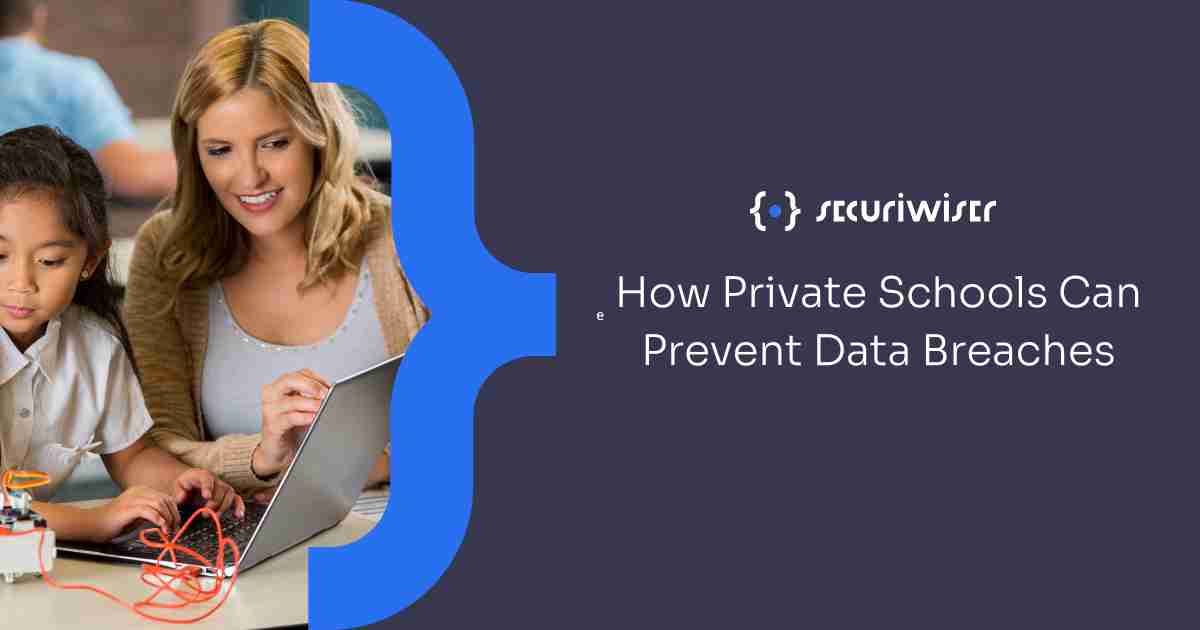How Private Schools Can Prevent Data Breaches
Blog / How Private Schools Can Prevent Data Breaches
3 MIN READ

UK private schools, also known as independent schools, are particularly vulnerable to cyberattacks due to often having poorly secured networks. This is often the result of a lack of education and training on cybersecurity, or funding required to secure their digital infrastructure. As schools shift towards digital learning and increased reliance on technology post-COVID-19, it is essential for them to learn best practices to prevent data breaches and cyberattacks. This article will discuss how UK private schools can build their security posture and implement strong data security and data privacy practices.
Why Are Private Schools Being Targeted?
In recent years, there has been a significant increase in cyberattacks targeting not only private schools in the UK, but the education sector as a whole. A study by Microsoft Security Intelligence found that 61% of malware attacks occur in the education sector, making it the most heavily affected industry.
These attacks can have far-reaching and serious consequences, such as identity theft, reputational damage, and loss of confidential information. So, why are private schools becoming a target for cyber criminals?
Lack of robust security measures
One reason is the lack of robust security measures in place. Many private schools operate with minimal funding, making cybersecurity a lower priority in comparison to staffing, resources, and events. This often results in inadequate security practices, leaving sensitive information vulnerable to cyber criminals.
Lack of IT professionals
Many private schools lack the necessary IT professionals or teams to oversee network security. This leaves many of their systems exposed, making them an easy target for cyberattacks.
Sensitive nature of information stored
Another reason is the sensitive nature of the information stored in private schools. Schools often store sensitive data such as medical records, disciplinary records, and special education records, which can be valuable for cybercriminals.
With the rise of online payment systems and digital platforms as well, private schools now hold a vast amount of sensitive information that cybercriminals can use for identity theft and financial fraud.
Reliance on technology
The shift towards digital learning and increased reliance on technology post-COVID-19 has also played a role in making private schools more vulnerable to cyberattacks. As schools continue to transition into a digital learning environment, the risk of data breaches and cyberattacks increases.
How Can Private Schools Prevent Data Breaches?
As a private school in the UK, the protection of sensitive information about students, staff, and the school itself is of paramount importance. To ensure the security of this information and prevent data breaches, it is essential for private schools to take proactive measures. Below are some steps that private schools can take to safeguard against data breaches:
- Implement strong security protocols: To protect the school's network and devices from cyberattacks, private schools should utilise firewalls, anti-virus software, and intrusion detection systems.
- Train staff and students: Ensuring that everyone in the school, from teachers to students, is aware of the importance of data security and trained on how to identify and avoid potential security threats is crucial.
- Conduct regular security audits: Regularly assessing the school's security systems and procedures to identify and address vulnerabilities is important to ensure the security of the school's data.
- Use secure storage and data backup: Sensitive data should be kept in secure storage, and regular data backups should be done to minimise the risk of data loss in the event of a security breach.
- Use encrypted communications: To protect sensitive information when communicating with staff, students, and parents, private schools should use encrypted email and messaging services.
- Use Two-factor authentication: Implementing Two-factor authentication for all applications and systems that the school uses to access sensitive data is an effective way to prevent unauthorised access to the school's data.
- Use a password manager: Encouraging staff and students to use a password manager to generate and store strong and unique passwords can help to prevent password-related data breaches.
By taking these steps, private schools in the UK can help to protect sensitive information and prevent data breaches. It is also important to regularly monitor the school's security systems and stay current with the latest security trends and threats. This includes staying informed about the latest threats and vulnerabilities and updating security protocols and software as needed.
Conclusion
In conclusion, private schools in the UK are facing an increasing threat of cyberattacks due to the lack of robust security measures, lack of IT professionals, and the sensitive nature of the information stored in these institutions. With the rise of digital learning and increased reliance on technology post-COVID-19, private schools must take proactive measures to safeguard against data breaches and cyberattacks.
Improve in your school today. Sign up for a free Securwiser account to easily assess and manage your security risks all in one platform.
How secure is
your school?
Blog categories
How secure is
your school?